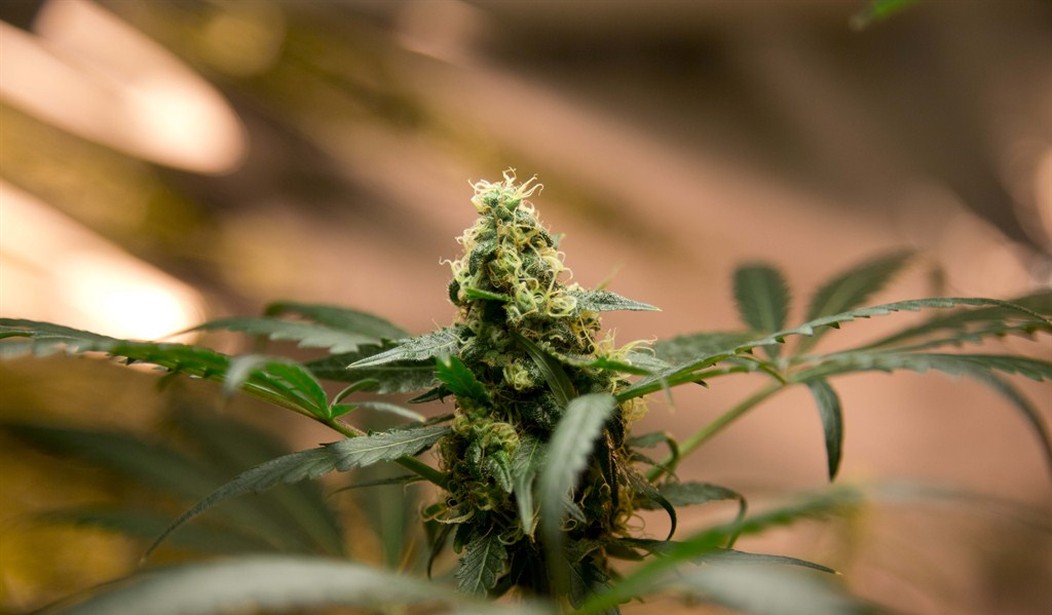In an interview with Vice News released Monday, President Obama stated that marijuana legalization “shouldn’t be young people’s biggest priority” and that they “should be thinking about climate change, the economy, jobs, war and peace.” He then went on to intimate that ending the prohibition of other, harder drugs would be unreasonable. But in truth, what’s unreasonable is the notion that marijuana prohibition – and drug prohibition at large — has nothing to do with the economy and jobs.
Since the time President Nixon officially declared a “War on Drugs” in 1971, the United States has spent well over $1 trillion enforcing drug laws and incarcerating drug offenders. But this is just part of the equation and there are other costs incurred from drug prohibition, namely productivity losses in the labor sector. For the year 2007 alone, the Department of Justice put that price tag at a total of $48 million, in regard to both market and household productivity losses as a direct result of the incarceration of drug offenders.
The reason that these costs are so exorbitant is due in large part to the accelerated rate of incarceration that resulted when the nation’s draconian drug laws were established. Since the Controlled Substances Act was passed in 1970, the US prison population has surged 700 percent, leading to a populace full of convicts. Today, over one in every four American adults has a criminal record. Not only has this resulted in a number of non-violent criminals stigmatized for their past, but it has severely impacted their future.
Psychological studies have shown that most people who enter the criminal justice system do not escape “completely unchanged or unscathed by the experience.” In fact, incarceration can cause inmates to “depend heavily” on others to make their decisions for them and on the structure established by the institution. This can, in turn, “impede an ex-convict’s successful re-integration into a social network and employment setting.”
When criminal offenders leave prison and seek out that same structure, they are often met with unforeseen challenges. Across the nation, many public housing agencies are permitted to deny residence to those who have criminal backgrounds. And in the private sector, landlords often require prospective tenants to complete background check forms through services such as TransUnion’s SmartMove. How are those re-integrating into society supposed to become productive when it’s an uphill battle just to find someplace to live?
Recommended
When it comes to employment, the situation is worse. Although 14 states, Washington D.C., and 100 cities and counties have adopted hiring policies that allow job candidates to refrain from disclosing their criminal records on job applications, many others are not so fortunate. Further, a 2003 study published in the American Journal of Sociology found that a criminal record “reduces the likelihood of a callback by 50 percent.” Even when fair hiring policies are adopted, they only concern the application itself. Later on in the process, many companies conduct criminal background checks in order to assess potential safety and security risks regarding the candidates they have selected. In fact, a study conducted by the Society for Human Resource Management published in 2010 discovered that over 90 percent of companies reported using criminal background checks in hiring decisions.
With 1.5 million Americans arrested on drug charges each year — half of whom are marijuana offenders — it’s easy to see how drug reform could successfully impact the economy. In fact, states that have already begun to reform marijuana laws have made it easier for those with marijuana convictions to find employment. Just this week, the Connecticut Supreme Court ruled that the state’s 2011 marijuana decriminalization law allows for low-level marijuana possession convictions to be erased.
At the same time, other marijuana reform initiatives have actually boosted job creation. In Colorado, where recreational marijuana is legal, the cannabis industry has created 16,000 new jobs. As more reform begins to spread, more jobs can be expected.
So perhaps Millennials’ attraction to drug reform isn’t because they don’t have their priorities straight, but because they can see through the surface of the issue and identify the myriad problems stemming from prohibition that translate over into other policy issues. Millennials are thinking about jobs and the economy, but those in Washington are simply unable to identify their connection to drug reform.

























Join the conversation as a VIP Member